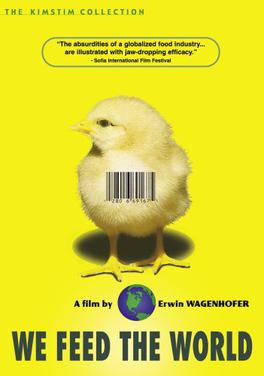We Feed the World
We Feed the World is a global initiative focused on addressing the challenges of food security, sustainable agriculture, and nutrition. It aims to bring together farmers, businesses, policymakers, and individuals to create a more sustainable and equitable food system. The initiative emphasizes the importance of local food production, reducing food waste, and supporting small-scale farmers to ensure that everyone has access to nutritious and affordable food.
Overview[edit | edit source]
We Feed the World operates on the principle that the current global food system is unsustainable in the face of growing population pressures, climate change, and economic inequality. It advocates for a shift towards more localized and sustainable food production methods that can help reduce the environmental impact of agriculture, improve food nutrition, and bolster local economies.
Key Initiatives[edit | edit source]
The initiative encompasses several key areas of focus:
- Sustainable Farming Practices: Promoting methods of farming that maintain the health of the soil, conserve water, and reduce the need for chemical fertilizers and pesticides.
- Food Waste Reduction: Implementing strategies to reduce food loss and waste throughout the supply chain, from farm to table.
- Support for Small-scale Farmers: Providing small-scale farmers with the resources and knowledge they need to improve productivity, access markets, and increase their incomes.
- Nutrition and Health: Ensuring that food systems contribute to diets that are nutritious and promote good health, particularly in underserved communities.
- Climate Change Mitigation: Addressing the role of agriculture in climate change and developing practices that can reduce greenhouse gas emissions from the food sector.
Challenges and Opportunities[edit | edit source]
We Feed the World faces numerous challenges, including changing climate conditions, resistance to change in agricultural practices, and the need for significant investment in sustainable technologies. However, it also presents opportunities for innovation, collaboration, and the development of new markets for sustainable food products.
Impact[edit | edit source]
The initiative has garnered support from various stakeholders, including international organizations, non-governmental organizations (NGOs), and the private sector. Its impact can be seen in the increased awareness of the importance of sustainable food systems, the adoption of more sustainable farming practices in certain regions, and the development of policies aimed at reducing food waste and supporting small-scale farmers.
Future Directions[edit | edit source]
Looking forward, We Feed the World aims to expand its reach and deepen its impact by engaging more stakeholders, scaling up successful practices, and advocating for policies that support sustainable food systems globally. It seeks to be a catalyst for change, driving the transition towards a food system that is truly sustainable, equitable, and resilient.
Search WikiMD
Ad.Tired of being Overweight? Try W8MD's physician weight loss program.
Semaglutide (Ozempic / Wegovy and Tirzepatide (Mounjaro / Zepbound) available.
Advertise on WikiMD
|
WikiMD's Wellness Encyclopedia |
| Let Food Be Thy Medicine Medicine Thy Food - Hippocrates |
Translate this page: - East Asian
中文,
日本,
한국어,
South Asian
हिन्दी,
தமிழ்,
తెలుగు,
Urdu,
ಕನ್ನಡ,
Southeast Asian
Indonesian,
Vietnamese,
Thai,
မြန်မာဘာသာ,
বাংলা
European
español,
Deutsch,
français,
Greek,
português do Brasil,
polski,
română,
русский,
Nederlands,
norsk,
svenska,
suomi,
Italian
Middle Eastern & African
عربى,
Turkish,
Persian,
Hebrew,
Afrikaans,
isiZulu,
Kiswahili,
Other
Bulgarian,
Hungarian,
Czech,
Swedish,
മലയാളം,
मराठी,
ਪੰਜਾਬੀ,
ગુજરાતી,
Portuguese,
Ukrainian
Medical Disclaimer: WikiMD is not a substitute for professional medical advice. The information on WikiMD is provided as an information resource only, may be incorrect, outdated or misleading, and is not to be used or relied on for any diagnostic or treatment purposes. Please consult your health care provider before making any healthcare decisions or for guidance about a specific medical condition. WikiMD expressly disclaims responsibility, and shall have no liability, for any damages, loss, injury, or liability whatsoever suffered as a result of your reliance on the information contained in this site. By visiting this site you agree to the foregoing terms and conditions, which may from time to time be changed or supplemented by WikiMD. If you do not agree to the foregoing terms and conditions, you should not enter or use this site. See full disclaimer.
Credits:Most images are courtesy of Wikimedia commons, and templates Wikipedia, licensed under CC BY SA or similar.
Contributors: Prab R. Tumpati, MD

